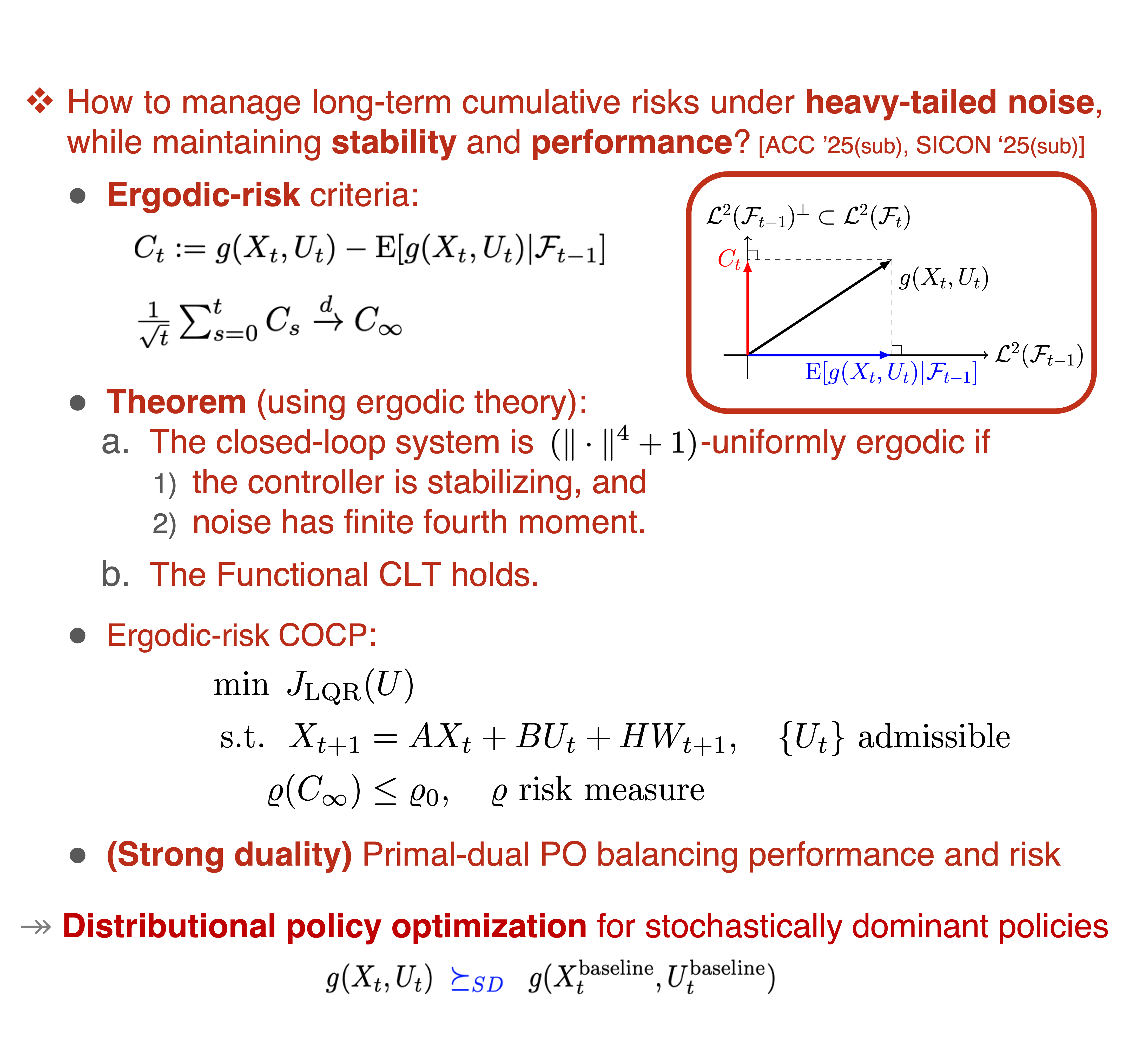03 - Risk
A novel approach to long-term risk-sensitive control in stochastic systems through the so-called ergodic-risk criteria

In stochastic systems, balancing performance with resilience to rare events is critical. Traditional approaches often focus on finite-horizon risk, overlooking long-term cumulative risks unless by imposing strong assumptions on process noise (Biswas and Borkar, Annual Reviews 2023). My recent work (Talebi & Li, 2024) addresses this by introducing ergodic-risk criteria through probabilistic limiting theorems that can account for noise with unbounded moments. Then through primal-dual optimization techniques, an optimal policy is obtained that balances average performance with ergodic-risk constraints. This extends risk-sensitive methods to a more versatile framework for long-term risk-sensitive control in stochastic systems capable of handling extreme events. Central to my analysis is a tailored Functional Central Limit Theorem (FCLT), where I can establish convergence even in non-stationary environments with heavy-tailed noise.
This is achieved by utilizing ergodic theory (Meyn, Tweedie, and Glynn, Markov Chains and Stochastic Stablity 2009), ensuring uniform ergodicity of controlled processes where stability is maintained even with heavy-tailed noise, provided it has a finite fourth moment.
Key references: